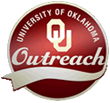Big Brothers Big Sisters School-Based Program
This link is to information about the Big Brothers Big Sisters school-based program. Additional information can be obtained from the local Big Brothers Big Sisters organization.
Center for Indian Education
As noted at its website, "the Center for Indian Education is an interdisciplinary research and service organization housed in the College of Education at Arizona State University. The Center promotes studies in American Indian/Alaska Native policy and administration that contribute to the quality of scholarship and effective practices in education, professional training and tribal capacity building."
Early Warning! Why Reading by the End of Third Grade Matters
This link to the Annie E. Casey Foundation's Kids Count special report explores why achieving reading literacy by third grade is important. Educators of early learners may find it useful when discussing language and literacy development with parents, educators, policy makers, and community leaders.
Migrant Education: Even Start
This link goes to the U.S. Department of Education's Office of Migrant Education information on the Even Start program.
National Association for Bilingual Education
As noted at its website, "the National Association for Bilingual Education (NABE) is the only national professional organization devoted to representing Bilingual Learners and Bilingual Education professionals. NABE has affiliates in 25 states which collectively represent more than 20,000 members that include bilingual and English language learner (ELL) teachers, parents, paraprofessionals, administrators, professors, advocates, researchers, and policy makers."
National Indian Education Association (NIEA)
As noted at its website, "The National Indian Education Association is a membership based organization committed to increasing educational opportunities and resources for American Indian, Alaska Native, and Native Hawaiian students while protecting our cultural and linguistic traditions."
National Urban League - Education and Youth Services
This link is to the National Urban League's website information about education and youth development.
Now for Later
This link to the Missouri Department of Elementary and Secondary Education's Now for Later website promoting the importance of early learning. As noted at the Now for Later website, the initiative's purpose "is to help raise awareness among parents, professionals and community leaders of the importance of school readiness, the need for quality early learning opportunities, and the role of family and early childhood programs." Though intended for the state of Missouri, educators of early learners may find the content useful in their states. It is offered as an example of a state-wide initiative to enhance school readiness of early learners.
Office of Indian Education
This link is to the U.S. Department of Education's Office of Indian Education website.
UNIDOS US (formerly NCLR)
As noted at its website, "UNIDOS US, formerly the National Council of La Raza (NCLR), is the largest national Hispanic civil rights and advocacy organization in the United States and works to improve opportunities for Hispanic Americans."
YMCA
This link is to the YMCA's national website.
YWCA
This link is to the website for the YWCA USA.
